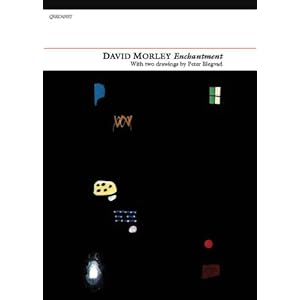There’s a song called All the Way from Tuam, by an Irish band called The Saw Doctors, which has a line that goes (roughly) ‘No matter where you’re from, everyone’s local’. They were a lot bigger then – 2009, I’d guess, and they were being interviewed about their music. They explained that they had found, when they sang about their home town, their audiences would identify with it, all over the world. Audiences had shared similar experiences and felt the same, often ambivalent emotions, about their own home towns. This seems to me to be an important point when considering what I am calling ‘grounded poetry’, because the big criticism of local or rural poetry is that it is narrow or parochial, uneducated and ill-informed, and of no real interest to the wider, more cosmopolitan reading public.
There seemed to be a feeling at one time that, if you wrote about a particular place, landscape, event or custom, then it showed that you were only aware of that particular locality; that you expected your readers to attach an undue importance to that locality; or possibly even that you were restricting your attention to that locality for some cheap local popularity, because you knew that you didn’t have the talent or education to make it on the bigger stage. Class comes into this of course, as Clare soon discovered, but even Wordsworth suffered from it. To this day Liz Berry is often asked to justify writing in her local dialect, though I think myself her stunning collection, Black Country, should be justification in itself. Niall Campbell’s poems about his childhood home of South Uist do not create an romantic and exotic place to be sentimental about; they create the vivid sense of that locality because he is at home there, but they are as much about the experience of being at home anywhere as they are about that place. That is the root of grounded poetry – no matter where you’re from, everyone’s local.
Grounded poetry, because it is rooted in home territory, need not restrict its attention to the narrow lives and concerns of that home territory; on the contrary, a sense of rootedness and connection gives a different and a valuable perspective to the more universal vision. Sorley MacLean’s integration of the clearances on Skye into a survey of, and commentary on the world-wide proletarian struggle, is perhaps the best known example, or perhaps Michael Hartnett’s poems in Irish and English, heavily influenced by Lorca, which gave Irish poetry links to European Modernist writing, thus bypassing the habitual deference to the mainstream of writing in English. Christine de Luca does the same for Shetlandic, as I wrote at length in Northwords Now, and David Morley for Romani which he includes without apology or sweetening in his poems. There’s a place for the broader perspective, but attention to what Welsh poets call ‘your own quarter mile’ may give poetry a more intense focus and greater depth.

